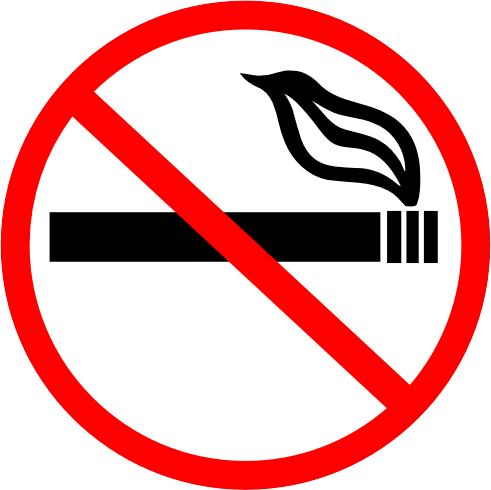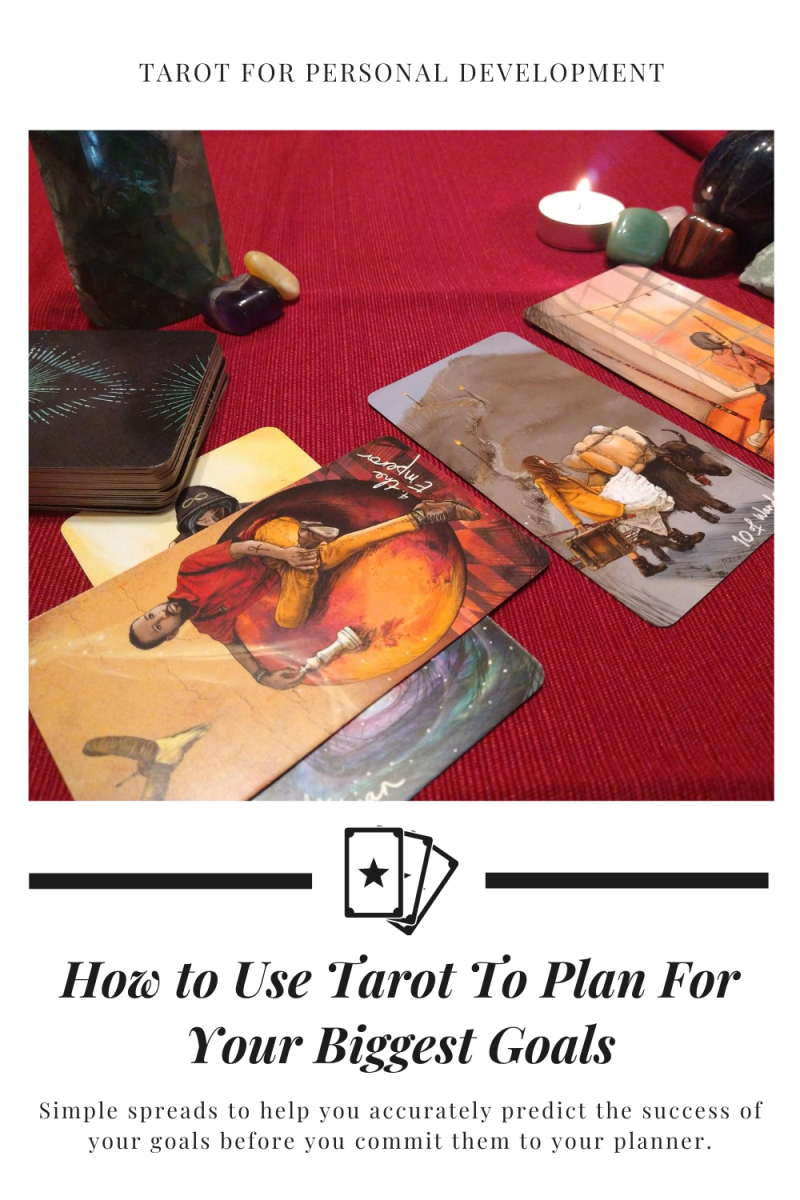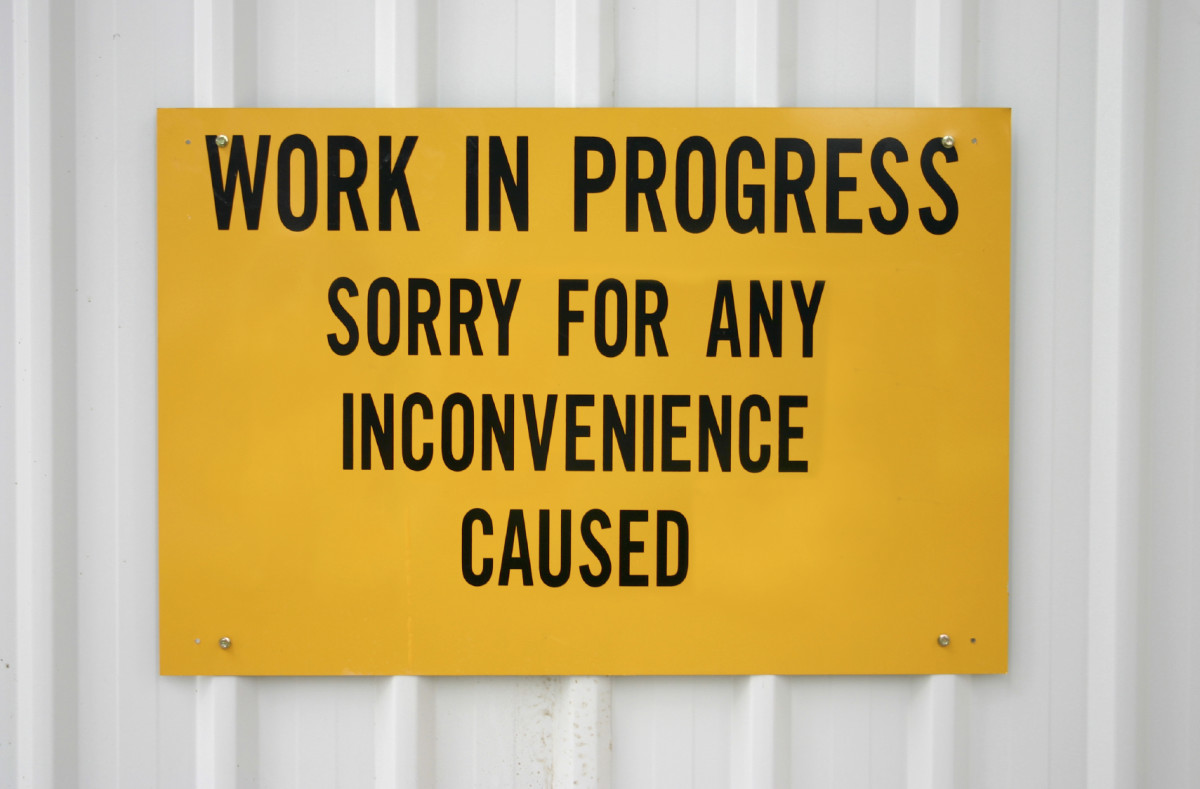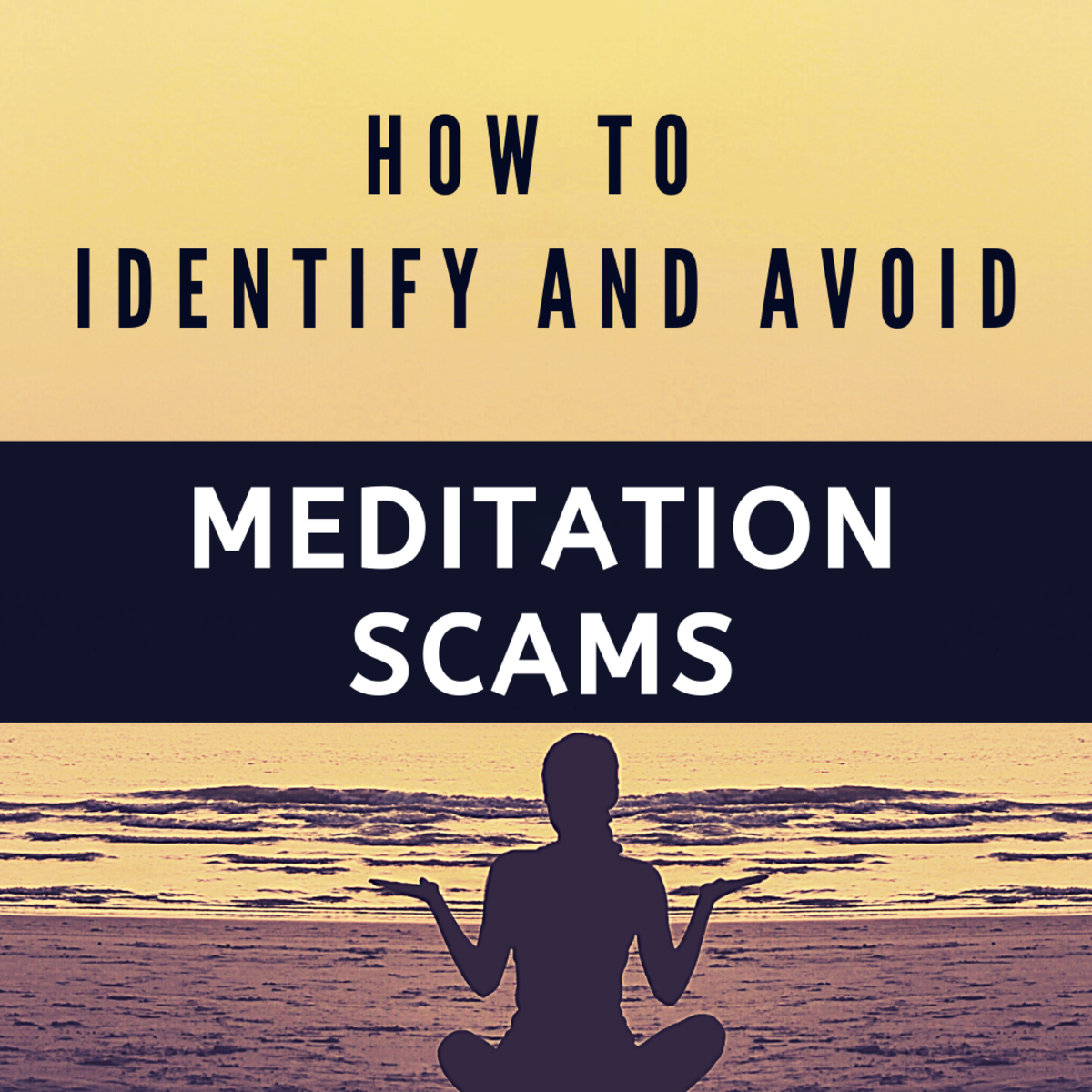- HubPages»
- Health»
- Quality of Life & Wellness»
- Personal Development
New Years Resolutions That Work: 5 Tips to Success
Most people think New Years resolutions don't work. They do - if you know how. Use the new year to make a real change in your life.
Transformation is Possible

Two Ways to Change Your Life
For some of us, our life situation is good overall, with maybe a few rusty spots and forgotten dreams. For others, life may - if I am blunt - really suck right now. We may not have enough money to get by. We may not have the relationship we want, or it may have gotten stuck in a miserable place. Or we may not have our health.
Whatever our situation, we can always come to greater peace and acceptance. And I don't mean passivity: I mean a peace and acceptance that opens us to energy for change. Change what? That's up to you! Maybe you want to fix a small problem. Maybe it's time to take a big dream - a castle in the air - and, as Thoreau said, build a foundation under it.
Whether you're solving a problem or bringing a dream to life, there are two basic approaches: You can start small, or you can start big.
Starting Small
For most people, this is the easiest approach. We pick one thing we want to start doing, or one thing we want to stop doing, and focus on that. We keep it simple. This article will focus mostly on making one small change.
Starting Big
Some of us, though, are itching for change. I'm like that. I'm constantly re-inventing myself. I want to wipe out lots of old, unhealthy habits and begin whole new programs all the time - probably too much for my own good, to be honest. I want to create and write and try all kinds of new things.
But big changes are made up of lots of little changes. I'll be writing more about big changes in another article. But you'll want to read this one, so you can make each little step of a big change work.
As you'll see, a small change can make a bigger difference than you can imagine!
New Years Resolutions Since Ancient Times
For over a thousand years, Judaism has encouraged people to look at the last year of their lives at New Years. We list our errors, agree to turn around, and commit to not make the same mistakes in the coming year.
In 1740, John Wesley, the founder of the Methodist Church, created watch night services for the renewal of their religious covenants. This renewal was encouraged with singing, spontaneous prayers, and testimonials. The idea has spread throughout Christianity, with changes. Presbyterians have their service on Christmas day, African-American churches began on New Years Eve 1863 when slaves gathered for the enactment of the emancipation proclamation. Anglicans and Catholics celebrate a midnight mass.
Ancient Babylonians, Romans, and medieval knights made or renewed vows at the beginning of each year.
So, people have been making New Years resolutions for a long time. But do they work?
What is a New Years Resolution?
New Years resolutions are personal. We each make them ourselves, though we can work on keeping them in a group. And that can be a good idea.
A new years resolution is a commitment to action and change. It can be:
- To end an old habit (such as stopping smoking).
- To begin a new habit (such as weekly dates with your husband or wife).
- To achieve a goal (such as get a new job).
Why People Say New Years Resolutions Don't Work
What the Statistics Tell Us
A study in 2007 showed that most people fail in their New Years resolutions - only 12% succeed.
What the Pundits Tell Us
Most professional coaches and success authors will tell you that New Years resolutions don't work. Why?
I'm going to be blunt again: Here are the reasons why supposed professionals at creating success tell you that New Years resolutions don't work:
- They don't know how to make them work. They're right there in the 88% of failures. The only difference is they claim success and try to sell you on it.
- They make more money if you believe they don't work, and then they convince you that you need to buy their coaching system to make changes.
This article gives a very good list of the 10 top mistakes people make that cause their new years resolutions to fail.
So, I'm going to do something different. For free, I'll show you what makes the 12% who succeed different from the other 88%. Then you can make your New Years resolutions work for you - free of charge!
Reasons People Fail in their New Years Resolutions
Let's start by saying that it makes no sense to say "New Years resolutions work" or "New Years Resolutions don't work."
Some people make New Years resolutions work. Others don't. In that, it's just like owning a car. A person who keeps her car in good repair has a car that works. A person who doesn't keep his car in good repair has a car that doesn't work. If you want your New Years resolutions to work, get a good one, and keep it in good repair.
Are You Ready to Quit Smoking?

Here are the top five mistakes people make that cause their New Years Resolutions to fail.
- Picking something that doesn't mean anything to you, yourself. Sure, everyone tells you to quit smoking or lose weight. But if you don't care about that, you just won't do it.
- Picking something that you're not ready for. If you don't exercise, a resolution to start running three miles a day is going to go nowhere.
- Being vague. Saying "I'm going to lose weight" gets you nowhere. Saying, "I'm going to lose a pound a week for 24 weeks" works.
- Magical thinking. If someone says, "I made a resolution, and nothing happened," that's magical thinking. Just making a resolution does nothing. Change takes work. You will need to take action each and every day.
- Relying on willpower alone. Old habits are tougher than willpower. Using willpower, you will grind yourself down. Read on for some smarter ways to keep motivated!
Now you know the mistakes to avoid. Keep reading to pick a resolution and make it work.
January 1: I Can't Park at the Gym
This story from Kody Bateman, the creator of the phenomenally successful company Send Out Cards, illustrates the main reason that most people fail at their New Years resolutions.
Kody works out regularly, showing up at the gym around 8am. Usually, he has no trouble parking in the parking lot next door.
On January 1, Kody drove to the gym and found that the parking lot was full. Worse, all the street parking for two blocks around was full, as well. Kody saw the owner of the gym in his car, cruising slowly in the opposite direction. Kody rolled down his window and hailed his friend. "What's going on?"
"Don't worry," laughed the owner. "New Years resolutions. The cars will be gone in two weeks."
Sure enough, they were. Sad, but true, the 88% had given up and convinced themselves that New Years resolutions don't work. Kody got his parking space back, kept coming, and created the life that he wanted for himself, his family, and thousands of others.
Pick the New Years Resolution That's Right for You
If the #1 mistake in New Years resolutions is picking something that doesn't matter to you, then the the #1 solution is to pick something that you really care about.
If you're reading this article, you probably already know what resolution is just right for you. It's likely it's a change you've been wanting to make for a long time, and now's the time.
But if not, here are some ways to find out.
Find Your Passion
Your resolution has to matter to you. Here are three questions to get you started:
- If you could get rid of one old habit or attitude that's holding you back, what would it be?
- If you could start doing one new thing, what would be right for you?
- What one dream is worth making real?
As Joseph Campbell put it, if you want to find your New Years resolution, "follow your bliss."
Finding your own passion is especially important if you choose a resolution that everyone thinks is a good idea. If you want to quit smoking, lose weight, eat a healthier diet, or start to exercise, watch out! Are you doing it because everyone says it's a good idea? Are you doing it to impress others? That won't work - there's no staying power in the opinions of other people. If you want something that everyone wants, make sure you really want it for yourself!
Still stuck for ideas? Here's a list of areas of your life to consider: What specific change, goal, or dream pops to mind as you read it?
- Your body. Do you want to become healthier, become more fit, or more athletic? Do you want to dance more? Do you want to just enjoy life in your body, maybe spending more time in nature?
- Your emotions. Do you want to be less sad, depressed, or down? Do you want to be less hyper, less anxious, more relaxed and focused? Do you want to laugh more?
- Your mind. Do you want to have more focus and clarity? Do you want to learn a new language or skill? Do you want to become more widely read and wiser?
- Your energy. Do you want to have more balance, more relaxed drive? More joy?
- Your hobbies. Do you want to start or renew a hobby? Sing more? Go to museums or spend time in nature? Collect something?
- Your creative soul? Do you want to take up a craft or an art? To write? To dream more vividly? To travel and see the world? To have an adventure?
- Your spirit? Do you want to grow your inner peace?
- Your relationships? Is there a relationship you want to improve, with children, a loved one, parents, or friends? Or is there a relationship you need to end? Or do you need to find someone new?
- Your career? Do you want to change or improve your career? (If so, read How to Create a Five Year Career Plan.)
- Your life of service? Do you want to serve others more deeply, or do some particular volunteer work with people, animals, plants, or nature?
Pick One
By now, perhaps, you've picked one, or you've got a few ideas. Let's sharpen your plan!
New Years Resolutions That Work: The Tips
So - here are the five tips for successful New Years resolutions. This isn't rocket science - they're the opposite of the top five mistakes.
- Pick something you're passionate about. See the previous section. And, as part of this, pick just one thing at a time. (For an exception, see the sidebar: One Resolution, or Two?)
- Pick something you're ready for. Make sure your resolution is the right size for you.
- Be specific. Set a SMART goal and make a daily plan.
- Make it real each and every day.
- Make it fun and stay motivated.
Are You Ready For a 5K Race?

Or a Marathon?

Make a Resolution You're Ready For
There are two keys to making a resolution you are ready for: preparation, and right-sizing your resolution.
Preparation
Can you actually start doing what you want to do? In some cases, that's fairly easy to tell. If you have a history of knee problems, running two miles a day is not a good idea. You either want to work on your knees (say with yoga), or you want zero-impact or low-impact aerobics. Take it slow.
But some cases are harder to figure out. For example, if you've been ill, the body may not be ready to lose weight. For a healthy body in good physiological balance, reasonable, steady weight loss (say a pound a week) is easy. But those of us who suffer from chronic infections or have bad food habits or even food addictions are not really ready for weight loss.
For example, my resolutions for 2012 were all about getting healthy. I had some long-term chronic infections from childhood the doctors had no solutions for. I found some alternative health remedies and invested a whole year in getting healthy. It worked! And now that I'm healthy, my goal for 2013 is to lose 26 pounds in 26 weeks. I know I can do it because, in the past, I've lost weight when I was healthy - and gained it when I was sick.
Emotional readiness is even harder to gauge. I can't tell you how many times I thought I was ready to give up watching TV! I've watched a lot less from trying to quit - and I've improved the quality of the shows I watch. But I haven't given it up yet! I'll keep at this one, and get slowly healthier around TV as time goes on.
If you want to make a big step like giving up smoking or switching from fun dating to looking for a lifelong relationship, you might begin with some physical and emotional prep work. Set a goal of sorting out your feelings and testing the waters and learning how to make a change. In The Artists Way, Julia Cameron encourages and warns people who want to re-engage their creativity and get unblocked to affirm, "I understand that I am undertaking an intensive, guided encounter with my own creativity, I commit myself . . . I further understand that this course will raise issues and emotions for me to deal with. I commit myself to excellent self-care - adequate sleep, diet, exercise, and pampering - for the duration of the course."
So be sure to include some honest self-examination and excellent self-care in your plans for your New Years resolution.
Gold Stars for Singing
Okay, this is where I get to embarrass myself to make a point.
When I was five years old, I was told I couldn't sing. I believed that for 43 years. When I turned 48, I decided that I could sing if I wanted to. I found a wonderful singing teacher, Elisa James, and started lessons.
Of course, she taught kids, mostly. Few adults are ready to learn to sing. So she was used to giving out gold stars and butterflies for a good day in the classroom. I knew all about praise for small successes. So I decided to give it a try. Elisa would paste a stickum star or butterfly on my song sheet any day I did well.
And it worked at 48 as well as it would have worked at age 8! I laughed, I sang - and now, I can sing for life!
Never let them tell you you can't do anything! Praise for small successes leads to big success - for young and old.
Right-Sizing Your Resolution
Right-sizing your resolution is very personal. You can't pick something too large, or it will seem impossible. But if you pick something too small - less than what you really want - you won't feel motivated.
A lot of people get caught on this one. The most obvious example is weight loss. For the person who is pretty seriously overweight, the amount of weight loss that feels worthwhile may also feel impossible. Fortunately, there are three solutions for this: praise for small successes; and setting basic and stretch goals; and adjusting your goals over the year.
Praise for Small Successes
Even if your goal is to lose 30 pounds, praise yourself for losing a half-pound a week. If your goal is to run 2 miles a day, praise yourself for getting out the door in a pair of sneakers.
Psychological studies show that praise for small successes works for achieving big goals, for adults as well as for kids.
Setting Basic and Stretch Goals
People learning archery aim for the center spot on a target, the bullseye - which is bigger than an arrowhead. And, while they're learning, the goal is just to hit the target. All our goals should be like that. We set two goals: a basic goal that we are sure to meet with reasonable effort, and a stretch goal that we will achieve if we can. Here are some examples.
- Last year, at times, I watched TV 4 or 5 hours a night, 4 nights a week. Now, I will watch no more than two hours a night. That's my base goal. And my stretch goal is no more than two hours a week.
- I want to lose 26 pounds in 26 weeks. If I manage that, I'll focus on swimming or running or yoga. But if I don't lose all 26 pounds by June, I'll keep working at weight loss, and lose 26 pounds by September.
- I already run 3 miles a day. I want, at least, to increase to 5 miles a day and run a half-marathon in the fall. But, if I can, I want to increase to 10 miles a day and run my first marathon in the fall!
Adjusting Your Goals Over the Year
If you're shooting for a really big goal, and you're not sure you can do it, just break it up into stages. Set a goal for one month, or three months, and then take another step, and another, and another.
This is also a good approach if the goal might involve some challenging emotional work. Set a small goal at first to test the waters. For example, if you had a painful divorce a few years ago, your first goal might be to go on two dates in a month, and also keep a journal about your feelings. At the end of January, review your journal, pick a next step, and keep going.
Adjusting your goals over the year is also good if your goal is complicated, with a lot of moving parts, or if your life is complicated. Say you want to run a marathon. You know how to increase your daily running. But marathon training is a thing apart. You'll want to read, and consult with a sports physician and a coach. And if your job or life is too hectic, maybe that marathon should wait another year. But if you just push for the marathon, you'll die of disappointment when you see you can't do it. If you set reasonable monthly goals and do what you can while keeping balance in your life, you'll be more than satisfied with the results - you'll be delighted!
Write It Big, Write It Everywhere, Say It in Pictures!
Some people like to create vision boards. A vision board is a picture of your goal and how it will make you feel. Often, it is a collage. And you don't have to draw - you can clip photos from magazines or print them off from the web. If you make a vision board, make sure it gets you excited - then look at it every morning on your way out the door.
Or you can keep it simple - just make a big, colorful sign that says your goal in words. I have a sign in my office that says "Play Room," just to remind me to keep my work fun.
Other people like small reminders everywhere. A little note on the bathroom mirror; a magnet on the fridge; a note on the dashboard - each one reminds us of our goal.
Simple Resolutions and SMART Goals
Basically, a New Years resolution takes one of three simple forms:
- Giving up an old habit: I will stop doing X.
- Creating a new habit: I will do X daily or regularly.
- Achieving a goal: I will do X by date Y.
Writing down your goal in very simple language is crucial to your success. Then, to succeed, you will need to make it a SMART goal and to create a daily plan.
Set SMART Goals
SMART is an acronym used in business to define clear goals, but it works for personal goals and New Years resolutions as well. SMART means:
- Specific. Don't be vague.
- Measurable. Don't just say, "look fit and trim." Say, "I'm wearing a size 10 and men are turning their heads." Then count the heads.
- Achievable. Sure, we all want world peace. And it's good to work on it. But what can we achieve this year?
- Realistic. Can you achieve this goal without turning your life upside-down? This is important. Unrealistic goals lead, at best, to disappointment, and, at worst, to stress, illness, or injury.
- Time-bound. Set a date by which your old habit will be gone, your new habit will be solid every day for a month, or your goal will be achieved.
How Resolutions Work
Have you ever thought of how New Years Resolutions work before?
Serenity
The Serenity Prayer is a key tool for success in New Years resolutions. Here's how it goes:
God grant me the serenity to accept the things I cannot change,
The courage to change the things I can,
And the wisdom to know the difference.
For example, let's say you've set a goal of increasing your daily run to 10 miles a day and running a marathon later in the year. What can you control?
- Your schedule: Make time to run.
- Your commitment: Get out there and do it.
- Your equipment: Buy and wear good running shoes and gear that will keep you comfortable in any weather.
But there are many things you can't control: If you get an injury, you'll have to adjust your plans. If someone in your family gets sick, or you get a new job with longer hours, you may not be able to do the work as planned.
When choosing your New Years resolution, be very aware of whether it is largely under your control, or largely up to others. For example, if you plan to lose weight or exercise, that's mostly up to you. But if you plan on getting a new job or finding the man or woman of your dreams, well, you can put in the effort, but success depends partly on what the world brings to you!
Make It Daily
Turning one New Years resolution into 365 days of steady effort is the key to success. There are two steps to making your New Years resolution daily. First, create a daily plan, and then do it each and every day.
Create a Daily Plan
New Years resolutions work, quite simply, because we work at them 365 days a year. What will you do each day to achieve your goal. And, equally importantly, what will you not do? If I want to read 3 novels a month, I need to read about 50 pages a day, average. Well, maybe 30 pages on weekdays, and a couple of hundred on a weekend. But I also need to keep the TV turned off until my reading is done, and to get to bed early.
Make it daily even if it's weekly
What if your goal is something you can only work on on the weekends? Maybe you're going to your summer house every weekend to clean it out and fix it up before May. Great! But you can't work on it daily - it's too far away.
Oh, yes you can work on it daily! You can:
- Take "before" pictures and weekly progress pictures, bring them to work, and show friends what you are doing.
- Make shopping lists and do your Home Depot runs during the week, so you have more fix-up time at the house on the weekends.
- Make a vision board, and look at the picture of your dream home and think of all the fun you'll have every day.
- Invite friends to come up in the summer, and count down the days.
The lesson: Even if you can't work directly on your goal each and every day, dream and do something each and every day.
Each and Every Day
I mean something very specific by "each and every day." "Every day" is our goal - I will work towards my New Years resolution every day, no exception. "Each day" is our attitude - it doesn't matter if I forgot yesterday, or even if I blew it off all week. Each day stands alone. Whether I did it yesterday or not, I will do it today. Even if I know I can't do it tomorrow, I'll do it today.
If we do it each day, and do our best, we may or may not manage every day. But we will fulfill our resolution and meet our goal. More importantly, we will change our lives and gain confidence in our ability to change.
One Resolution, or Two?
If you've never tried a New Years resolution - or if you haven't made one work yet - you're probably best off making just one resolution this year.
There is one big exception to that: If you're trying to give up an old habit you enjoy - let's say - eating really big bowls of pasta - you might replace it with a new habit at the same time.
I had a friend who had to give up all wheat and gluten (that's bread, spaghetti, cake, and a lot of other good stuff) because he was diagnosed with Celiac disease. He made two resolutions - give up wheat and gluten, and learn gluten-free baking. He got himself a lot healthier, kept enjoying breads and cakes, and was very much appreciated at local clubs and events where his gluten-free goodies were a big hit!
Along the same lines, my own biggest success in reducing how much TV I watch came along with a resolution to read a lot more books. By and large, reading replaced TV.
Make it Fun and Stay Motivated
Back in the 1970s, when Jim Fixx wrote The Complete Book of Running, he started running at his doctor's suggestion, in the hope of losing weight and delaying a heart attack. He put on his old army boots (for real, I'm not kidding) and plodded down the road.
He quickly learned that toughing it out is not the easy way to achieve your goals. Fun is a big part of motivation:
- If you want to lose weight, pick healthy meals you enjoy, and learn to make them at home, or eat out at the right restaurants.
- If you want to stop watching TV, start reading, listening to music, or exercising.
- Get the gear or whatever will make you cheer!
Affirmations
Saying affirmations aloud as you start your new habit is a great way to go. One time I was at the gym, and a young man was lifting weights. On each rep he said, "for my mom; for my dad; for my brother; for my sister." I cheered him on by adding, "for my aunt; for my uncle; for grandpa; for grandma." He laughed and doubled his workout.
Later, we spoke, and he explained that his affirmation came because he saw so many other young men like himself come out of the army, drink beer, watch TV, get fat and lazy, and ruin their lives with their families. He was working out so he could be a better person for everyone he loved, and he didn't let himself forget it!
Vision and Song
Motivation is largely a right-brain emotional function. That side of the brain doesn't work much with words. So I encourage you to use pictures, vision, and song and music with rhythm. Get into it and feel alive, and you'll stay at it when the going gets tough. In fact, when the going gets tough, the really tough sing and get silly - all the way across the finish line.
First Thing First
If you possibly can, do something towards achieving your New Years Resolution first thing every morning. If that's possible, at least affirm and envision it.
A Fresh Start
Falling apart is not failing. In fact, falling apart is totally natural, completely human, and highly likely! If you miss a day or a week, that's okay. It doesn't matter how many times you fall down - as long as you pick yourself up afterwards and get going again. And don't waste time blaming yourself about the time you wasted: Just get going, keep moving, and enjoy the success of the moment.
Sow an action, reap a habit.Sow a habit, reap a character.
Sow a character, reap a destiny.
- Stephen R. Covey, author of The 7 Habits of Highly Effective People
From Small Changes to a Whole New Life
One small change a year doesn't sound like much, but it is.
There are two reasons for this. First, every successful change is an experience that increases our realistic self-confidence. I'm not talking about boosting self-esteem or vague rah-rah. I'm saying that, in getting rid of one old habit, or making one new habit real, or achieving a goal, we naturally start to think: If I could do that, then I could . . . :
- If I could go from being a couch potato to walking a mile a day, then I could get into swimming, or running, or dance.
- Now that I've lost some weight, I'm ready to quit smoking.
- Now that I've earned a raise, I'm going to go back to school and train for a better job.
- Now that I've made a trip a week to art museums and galleries, I want to learn to paint.
You get the idea!
The second reason is that habits tend to go together. If you've swapped lunch at Starbucks for a good salad, you probably notice that the folks at the salad bar look like they jog or play tennis. If you've dropped the TV and are reading novels, you'll find it easy to join a book discussion group - oh, there's a writer's group - I've always wanted to write . . .
Change one habit, and you could find yourself with a whole new crowd and a whole new set of healthy habits.








